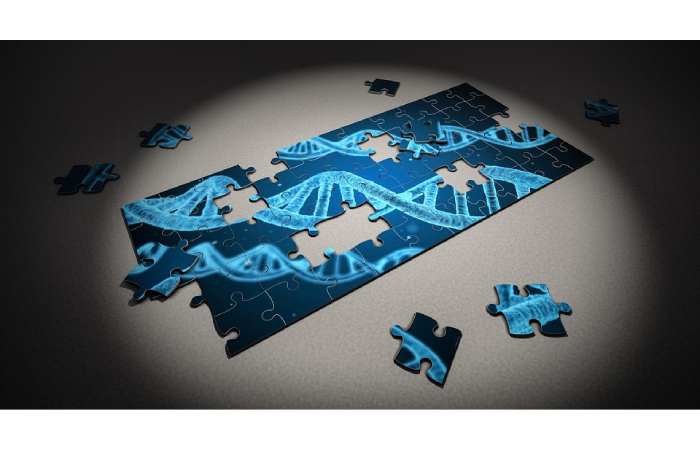It’s normal for our cells to deteriorate over time. However, cells can repair themselves, but the essential cellular resources deplete as we age. One of these resources is NAD+, a molecule that plays a vital role in our overall health.
Table of Contents
The role of Nicotinamide Adenine Dinucleotide
NAD+ or nicotinamide adenine dinucleotide helps regulate mitochondrial function and energy metabolism. NAD+ works as an electron carrier, which means it picks up electrons from one part of a cell and drops it off in another. This process is vital to several metabolic pathways, such as glycolysis and the citric acid cycle. In these metabolic processes, mitochondrial NAD+ carries a hydride, which is a hydrogen atom with an electron. The added hydride turns NAD+ into NADH, which transports the electron elsewhere.
Besides NAD+ metabolism, nicotinamide adenine dinucleotide is also needed by key enzymes in the body. Sirtuins, PARPs, and CD38 are all NAD+-dependent enzymes that maintain cellular health. These enzymes aid in NAD+ metabolism. Additionally, they are linked to mitigating age-associated diseases and DNA damage. Notably, hundreds of other enzymes rely on NAD+, further highlighting its importance to cellular health.
How cellular NAD+ helps with DNA Repair
Nicotinamide adenine dinucleotide provides many beneficial effects on a cellular level. NAD+ powers sirtuins and PARPs, which help repair DNA damage. Sirtuins are a class of enzymes that act as metabolic regulators and aid in cell maintenance. They are responsible for DNA repair, chromosomal stability, and cellular stress responses. There are seven types of sirtuins located in different parts of the cell, all with various roles. Sirtuin 1 primarily handles DNA repair.
Sirtuins are a class of enzymes that act as metabolic regulators and aid in cell maintenance. They are responsible for DNA repair, chromosomal stability, and cellular stress responses. There are seven types of sirtuins located in different parts of the cell, all with various roles. Sirtuin 1 primarily handles DNA repair.
PARPs or poly (ADP ribose) polymerases are involved in DNA repair, chromosome stability, and cell death. When DNA breaks from chemicals or metabolic stress, PARPs patch things up. They use NAD+ to create new DNA strands. However, excessive DNA damage can significantly decrease NAD+, which further depletes cellular energy (ATP) and accelerates aging.
NAD+ Prevents age-related Diseases
As we get older, NAD+ levels decrease. Lower NAD+ levels alter NA-D+ metabolism and hinder the performance of NAD+-dependent enzymes. This causes metabolic disorders, mitochondrial dysfunction, diminished muscle function, and age-related diseases. Many aging conditions, including neurodegeneration and cardiovascular disease, are linked to NA-D+ decline. Thus, replenishing N-AD+ levels upon aging has a high potential to mitigate these age-related diseases.
Where does NAD+ come from?
NA-D+ is in the nucleus, cytoplasm, and mitochondria, where energy metabolism occurs. Some cells can make NA-D+ from scratch using the amino acid L-tryptophan found in the food we consume. This is the de novo pathway. NA-D+ can also be synthesized via the Preiss-Handler pathway. The Preiss-Handler pathway converts nicotinic acid (NA) into nicotinic acid mononucleotide (NAMN). NA-D+ can also be recycled through the salvage pathway.
Certain lifestyle choices effectively increase NA-D+, including moderate exercise and caloric restriction. Foods with fructose or resveratrol can also help increase N-AD+. Furthermore, reducing alcohol intake and sun exposure can help maintain N-AD+ levels. Alcohol disrupts the balance between NADH and NA-D+, which disrupts metabolic processes. Sun exposure reduces NA-D+ levels in cells, which can cause premature aging and potentially lead to skin cancer.

NA-D+ supplementation is available through its precursors: NMN (nicotinamide mononucleotide) and NR (nicotinamide riboside).
These precursors are more effective than direct N-AD+ supplementation because extracellular NA-D+ cannot enter cells easily. Nicotinamide mononucleotide and nicotinamide riboside can turn into N-AD+ through the salvage pathway. NR is turned into NMN by enzymes after entering the cell. NMN is then introduced to the salvage pathway to be converted into NA-D+.
Nicotinamide adenine dinucleotide is essential in keeping enzymes and cells healthy. Without it, our bodies are susceptible to age-related diseases. Whether through diet, exercise, or supplementation, higher N-AD+ levels have beneficial effects on the body. That being said, please check with your healthcare provider before taking NR or NMN supplementation.
Learning about NA-D+ and having access to more research can give us hope for a brighter future. NAD.com is a great resource for anything you want to know about NA-D+ and research on aging and longevity.
